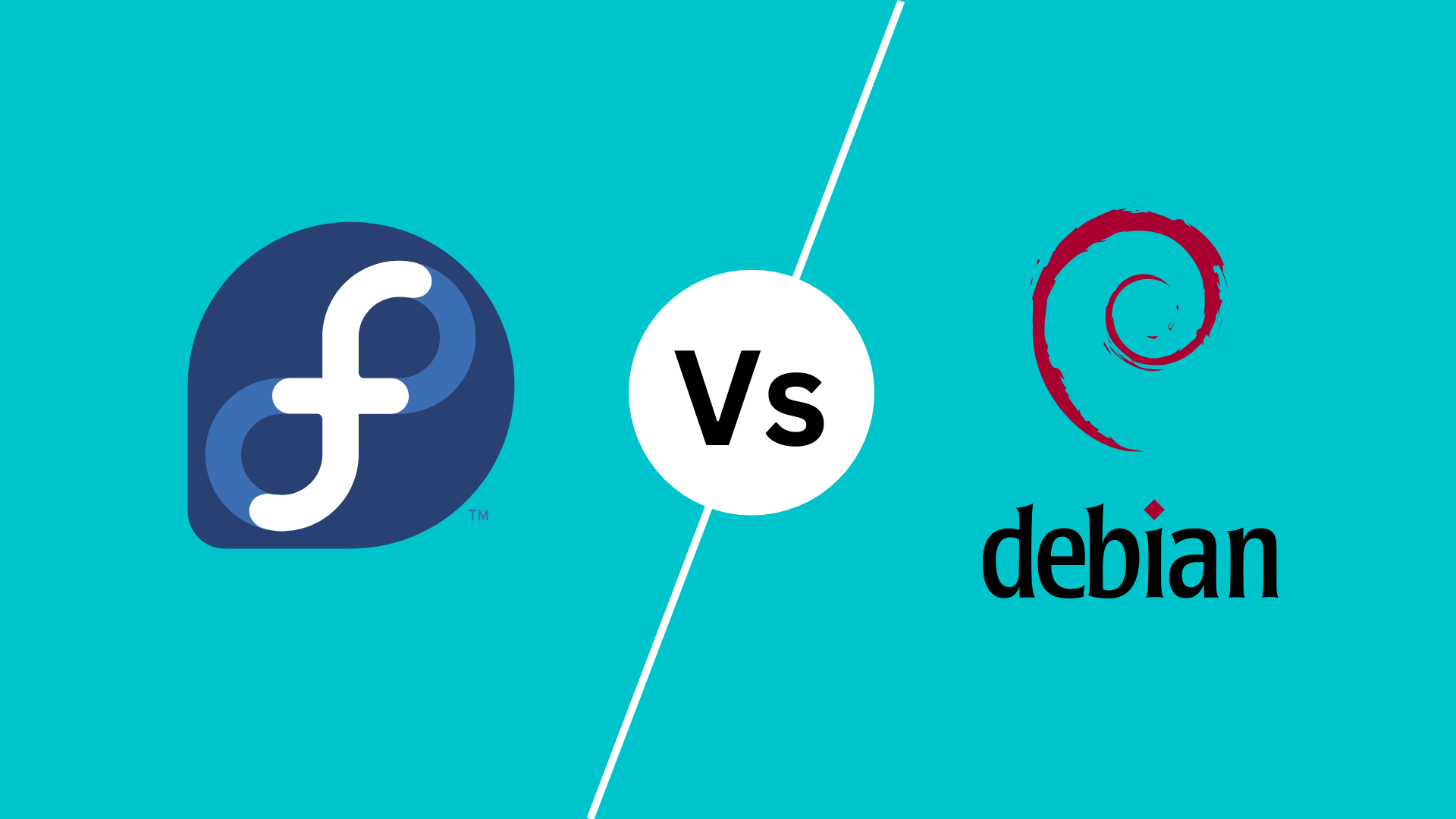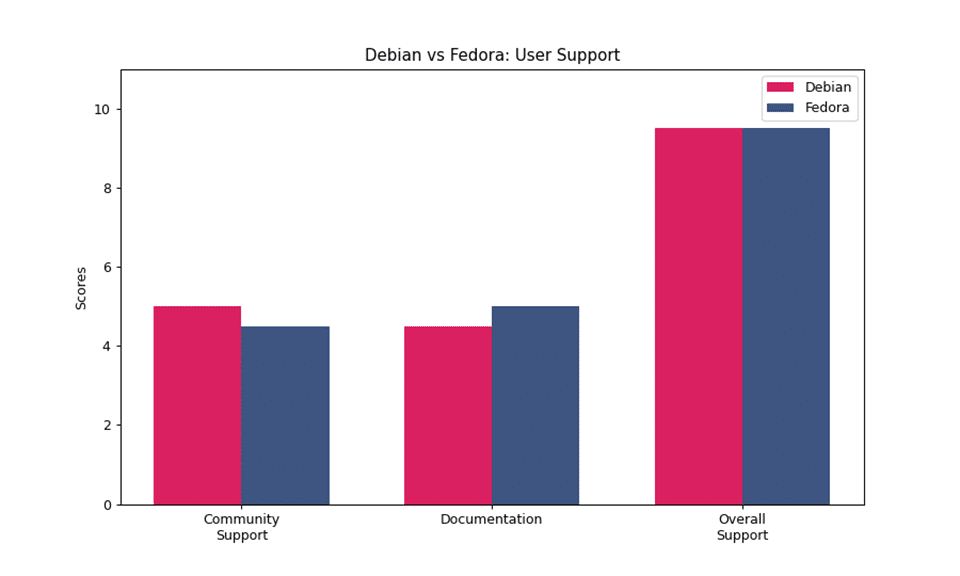Debian vs. Fedora: A Tale of Two Philosophies

In the realm of Linux distributions, two prominent names that often spark comparisons are Debian and Fedora. These distributions represent distinct philosophies, approaches, and communities, leading to unique advantages and differences. Understanding these nuances can help users make an informed choice based on their specific needs and preferences.

Debian: Stability and Conservatism

Debian embodies the concept of stability and conservatism. Its primary focus is on providing a rock-solid, reliable operating system that users can depend on for mission-critical applications. Debian adheres to a rigorous testing and release process, ensuring that software packages undergo thorough evaluation before becoming part of the distribution. This approach results in a stable and secure system at the cost of potentially being less up-to-date with the latest software versions.
Fedora: Innovation and Bleeding-Edge Software
Fedora embraces innovation and bleeding-edge software. It serves as a platform for cutting-edge technologies, providing users with access to the latest software releases, features, and updates. Fedora’s rapid development cycle allows it to incorporate new technologies quickly, making it an attractive choice for users who value staying on the forefront of technological advancements. However, this focus on the latest and greatest may come at the expense of stability and thorough testing.
Community and Support
Both Debian and Fedora boast active and supportive communities. Debian’s community is renowned for its expertise, dedication, and adherence to free and open-source software principles. Fedora’s community is equally vibrant, known for its contributions to open-source projects, documentation, and user support. Users of either distribution can find extensive documentation, forums, and mailing lists where they can seek assistance and engage with fellow Linux enthusiasts.
Package Management and Software Availability
Debian’s package management system, Advanced Packaging Tool (APT), is widely regarded as one of the most robust and user-friendly in the Linux world. APT allows users to easily install, update, and remove software packages from a vast repository of available software. Fedora employs the DNF package manager, which is known for its speed and flexibility. Both APT and DNF offer command-line and graphical user interface (GUI) tools, making it convenient for users to manage their software.
Release Cycles and Support Lifetime
Debian follows a stable release cycle, with new major releases occurring approximately every two years. Each release is supported for several years, providing long-term stability and compatibility. Fedora, on the other hand, adopts a shorter release cycle, with new versions released every six to eight months. This rapid release cycle ensures that users have access to the latest software but also means that each release is supported for a shorter period.
Conclusion
Ultimately, the choice between Debian and Fedora is a matter of personal preference and specific requirements. Debian appeals to users who prioritize stability, reliability, and long-term support. Fedora is a compelling option for those who value innovation, cutting-edge software, and the ability to experience the latest technological advancements. Both distributions offer robust communities, comprehensive package management systems, and well-established release cycles. By understanding the philosophies and strengths of each distribution, users can select the one that best aligns with their individual needs and expectations.

I found this article to be very informative and well-written. It provides a clear and concise comparison of the two most popular Linux distributions, Debian and Fedora. I especially appreciate the discussion of the different philosophies behind each distribution. This article has helped me to make an informed decision about which distribution to use for my next project.
I’m not sure I agree with the author’s assessment of Fedora. I’ve used both Debian and Fedora, and I’ve found Fedora to be more stable and user-friendly. I also don’t think the author gives enough credit to Fedora’s package management system, which I find to be superior to Debian’s.
I’m new to Linux, and I’m trying to decide which distribution to use. This article has been very helpful in understanding the differences between Debian and Fedora. I’m still not sure which one I’ll choose, but I’m definitely leaning towards Debian.
I think the author is biased towards Debian. He doesn’t give Fedora a fair shake. I’ve used both distributions, and I find Fedora to be a better choice for most users.
I’m glad to see that the author finally realized that Debian is the superior distribution. It’s about time.
Oh, look, another article comparing Debian and Fedora. How original.
I’m not sure what all the fuss is about. I use Arch Linux, and it’s the best distribution out there.
This article raises some interesting points about the different philosophies behind Debian and Fedora. I’m not sure I agree with all of the author’s conclusions, but I appreciate the thought-provoking discussion.
I found several errors in this article. For example, the author states that Debian is a rolling release distribution, but this is not true. Debian is a stable release distribution.
I’m curious to know what other readers think about this article. I’ve never used either Debian or Fedora, so I don’t have any personal experience to draw on.
I disagree with the author’s assessment of Fedora’s stability. I’ve used both Debian and Fedora, and I’ve found Fedora to be more stable.
I’m glad to see that the author finally realized that Debian is the superior distribution.
Oh, look, another article comparing Debian and Fedora. How original.
I’m not sure what all the fuss is about. I use Arch Linux, and it’s the best distribution out there.
This article raises some interesting points about the different philosophies behind Debian and Fedora. I’m not sure I agree with all of the author’s conclusions, but I appreciate the thought-provoking discussion.